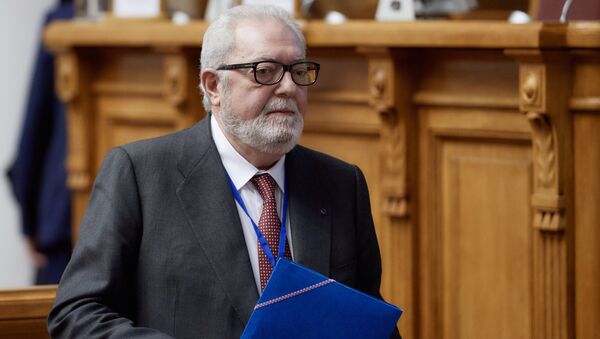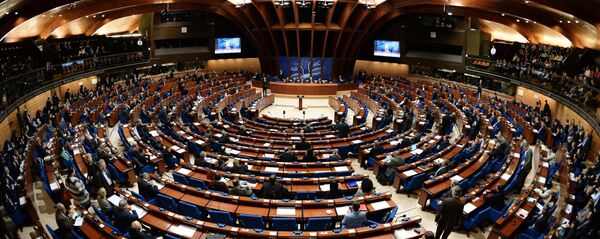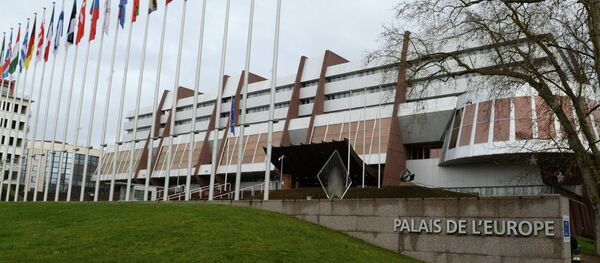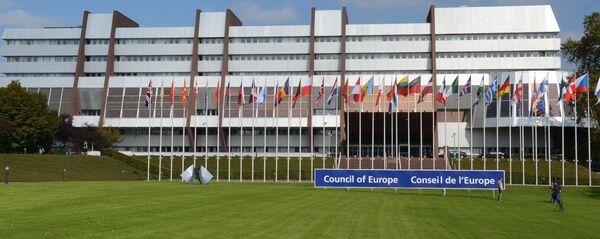At its plenary session last week, the parliamentary arm of the Council of Europe voted 154 to 30, with 13 abstentions, to amend the organization's rules of procedure, allowing MPs to make proposals to dismiss officials, up to and including the president. Immediately afterward, 158 out of 197 members from five political groups and 36 national delegations tabled a motion to dismiss President Pedro Agramunt. The motion will be put to a vote at a PACE session in October. In the interim, Agramunt has been barred from chairing Assembly meetings.
Agramunt faced intense criticism over the Syria trip, including for the fact that he entered the country onboard a Russian aircraft together with Russian lawmakers, and that he took a tour of the Russian Center for Reconciliation for Syria, a peace monitoring and information office center.
Pedro Agramunt claims he did not visit Assad in his function as pace president (1) pic.twitter.com/sxU2NBYdIJ
— Gerald Knaus (@rumeliobserver) 25 апреля 2017 г.
Following Wednesday's no confidence vote, Georgy Logvinsky, the Ukrainian vice president of PACE, indicated that he would carry out the duties of president and conduct meetings, but later retracted the claim. The Ukrainian delegation has long been at the forefront of the campaign to impeach Agramunt.
An Argamunt representative told Sputnik Wednesday that the campaign against the president was connected to Russophobic sentiments prevalent in the Assembly. "There is a Russophobic wave in PACE against any person who is trying to integrate European countries into a pan-European organization that is larger than the European Union," the representative explained. The representative added that anti-Russian sentiments are particularly strong among some of PACE's Eastern European members and MPs from Scandinavia.
Kiev has sought Agramunt's resignation since late 2016 after his call to begin negotiations on returning Russia's voting rights in the organization, accusing him of holding 'pro-Russian' sentiments for his suggestion that "no one benefits" from Russia's exclusion from the body. At that time, Ukrainian delegation member Irina Gerashchenko had vowed to 'hit at the president' "where it hurts him the most – his office."
Speaking to RT Russian, Alexei Martynov, director of the International Institute of New States, said that if Kiev succeeds in its campaign to propel its own representative to PACE's presidency, it would spell the death of the principles of European solidarity and parliamentarism. "Discussion and openness to different opinions will be out of the question, although the underlying European principles are already dying as we speak," the analyst noted.
Dmitri Levy, professor of European studies at St. Petersburg University's School of International Relations, expressed the opposite view, saying that there's no point in overestimating the importance of the role of the PACE presidency. "The shuffling of a representative of one or another state is of no particular importance; any politician who finds him or herself in this role will not be able to pursue exclusively their own national interests. In any case, decisions are taken collectively."
Russian officials have condemned the Assembly's moves against Agramunt. Russian Senate speaker Valentina Matviyenko called this week's PACE decisions "an example of the further degradation of the organization." She added that the decision against Agramunt was senseless, since his powers are set to run out in December anyway.
At the beginning of the year, Moscow made clear that it would not return to the organization as long as the discriminatory rules allowing a minority of delegates to deprive countries of voting rights were not changed. Last month, Duma Speaker Vyacheslav Volodin announced that Russia would also block its €11 million installment into the Assembly's budget amid Russia's continued non-participation in PACE sessions.
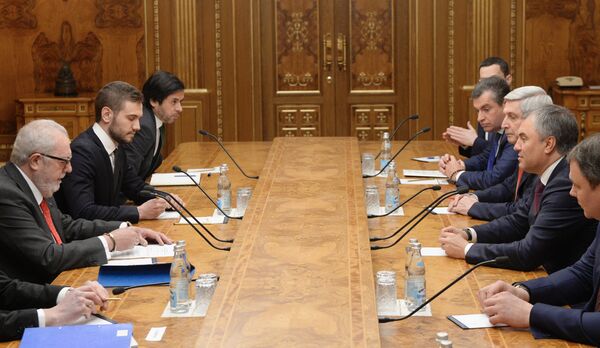
Russian observers have long stressed that Moscow should not overestimate PACE's importance. The Assembly can observe elections, adopt declarations and resolutions, they say, but governments do not have to listen to them. Furthermore, the organization is only part of the umbrella structure of the Council of Europe, in which Russia continues to participate.
Alexei Martynov emphasized that the Agramunt case demonstrates that the campaign against dissent within PACE is directed not just against Russia, but against any 'dissident' thought whatsoever.
"What kind of impeachment can be talked about if PACE is not a power structure, but simply an international organization of parliamentarians?" the observer asked. "The talk about Agramunt's impeachment is an element of pressure; he is being hounded because he did not see propaganda as truth, but went to the scene [in Syria] to sort things out for himself, which, by the way, is his direct responsibility. But now, this sort of behavior is considered to be a 'deviation from the party line' promoted in PACE."
